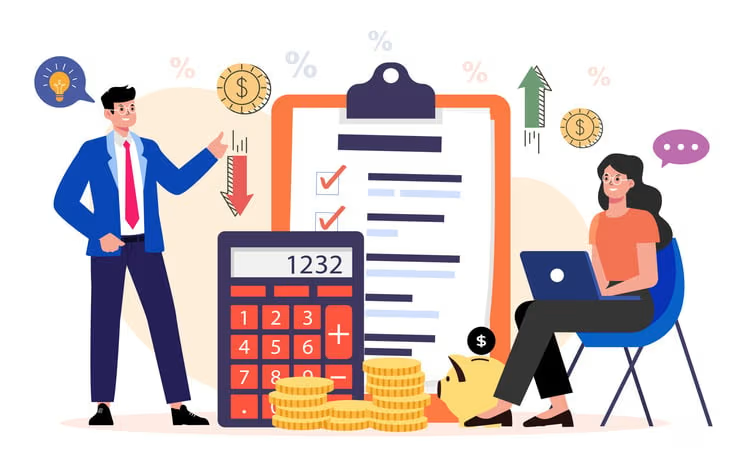
Table of Contents
Business credit plays a pivotal role in the growth and sustainability of any enterprise. Understanding and managing business credit is essential for securing funding, maintaining operations, and achieving long-term success. In this article, we delve deep into the intricacies of business credit, exploring its benefits, components, and strategies to build and maintain a robust credit profile for your business.
What is Business Credit?
Business credit refers to the ability of a company to borrow funds or acquire goods and services with the understanding that payments will be made at a later date. It is separate from personal credit and is tied to the business entity rather than an individual. Lenders, suppliers, and other creditors assess a business’s creditworthiness using various financial indicators and credit scores.
Why is Business Credit Important?
Establishing strong business credit offers numerous advantages, including:
- Access to Funding: A robust business credit profile enables businesses to secure loans, credit lines, and favorable terms with suppliers.
- Separation of Finances: Keeping personal and business credit separate safeguards personal assets and simplifies accounting.
- Improved Credibility: Strong business credit enhances a company’s reputation, making it more attractive to potential partners, vendors, and investors.
- Better Terms and Rates: Companies with excellent credit are often offered lower interest rates and more flexible repayment options.
How is Business Credit Built?
Building business credit involves several key steps:
Establish Your Business Entity
To build business credit, your company must be a legal entity. Options include forming a Limited Liability Company (LLC), Corporation, or Partnership. Ensure your business has:
- A Federal Employer Identification Number (EIN)
- A business bank account
- A physical address or a registered virtual address
Register with Credit Reporting Agencies
Major credit reporting agencies for businesses include:
- Dun & Bradstreet (D&B): Register for a D-U-N-S Number to start building your credit file.
- Experian Business
- Equifax Business
Open Trade Credit Accounts
Establish credit accounts with vendors and suppliers that report to business credit bureaus. Consistently paying invoices on time builds a positive payment history.
Obtain a Business Credit Card
Using a business credit card responsibly can significantly enhance your credit profile. Choose cards specifically designed for businesses and pay off balances in full whenever possible.
Monitor Your Credit Reports
Regularly review your business credit reports for inaccuracies. Promptly dispute any errors to maintain an accurate and favorable credit profile.
Understanding Business Credit Scores
Business credit scores differ from personal credit scores and vary depending on the agency. Key scoring models include:
- Dun & Bradstreet Paydex Score: Ranges from 0 to 100, with higher scores indicating prompt payments.
- Experian Intelliscore Plus: Scores range from 1 to 100, factoring in payment history, credit utilization, and industry risk.
- Equifax Business Credit Risk Score: Focuses on the likelihood of severe delinquency within a year.
Factors Affecting Business Credit
Several factors influence a company’s creditworthiness, including:
- Payment History: Timely payments to creditors and suppliers are critical.
- Credit Utilization: Keeping credit usage below 30% of available limits demonstrates responsible financial management.
- Business Longevity: Older businesses often have stronger credit profiles due to established financial histories.
- Industry Risk: Some industries are deemed riskier by lenders, which can impact credit assessments.
- Public Records: Bankruptcies, liens, and judgments negatively affect credit scores.
Benefits of Maintaining Strong Business Credit
Maintaining a high business credit score provides substantial advantages, such as:
- Easier Loan Approvals: Strong credit reduces the risk for lenders, making approval more likely.
- Higher Credit Limits: Businesses with excellent credit can access larger credit lines to support growth and operations.
- Negotiating Power: A strong credit profile allows businesses to negotiate better terms with suppliers and lenders.
- Emergency Preparedness: Credit can serve as a financial buffer during economic downturns or unexpected expenses.
Common Mistakes to Avoid
While building and managing business credit, avoid these common pitfalls:
- Mixing Personal and Business Finances: This complicates credit building and increases financial risk.
- Neglecting Credit Monitoring: Unmonitored credit profiles can lead to missed errors or fraud.
- Overextending Credit: Excessive borrowing can harm your credit score and financial stability.
- Ignoring Vendor Relationships: Establishing good relationships with vendors can lead to better terms and faster credit building.
How to Improve Business Credit
If your business credit score needs improvement, consider the following strategies:
- Pay Bills Early: Early payments can boost your Paydex score.
- Reduce Debt: Lowering credit utilization enhances your creditworthiness.
- Increase Trade Accounts: Expand the number of vendors reporting positive payment activity.
- Correct Errors: Dispute inaccuracies on your credit reports promptly.
- Diversify Credit Types: Utilize a mix of credit lines, loans, and trade accounts.
Conclusion
Understanding and leveraging business credit is essential for the financial health and growth of any company. By following the steps outlined above, businesses can establish a strong credit profile, access better financing options, and position themselves for long-term success. Investing time and effort into managing business credit pays dividends in enhanced credibility and financial flexibility.
